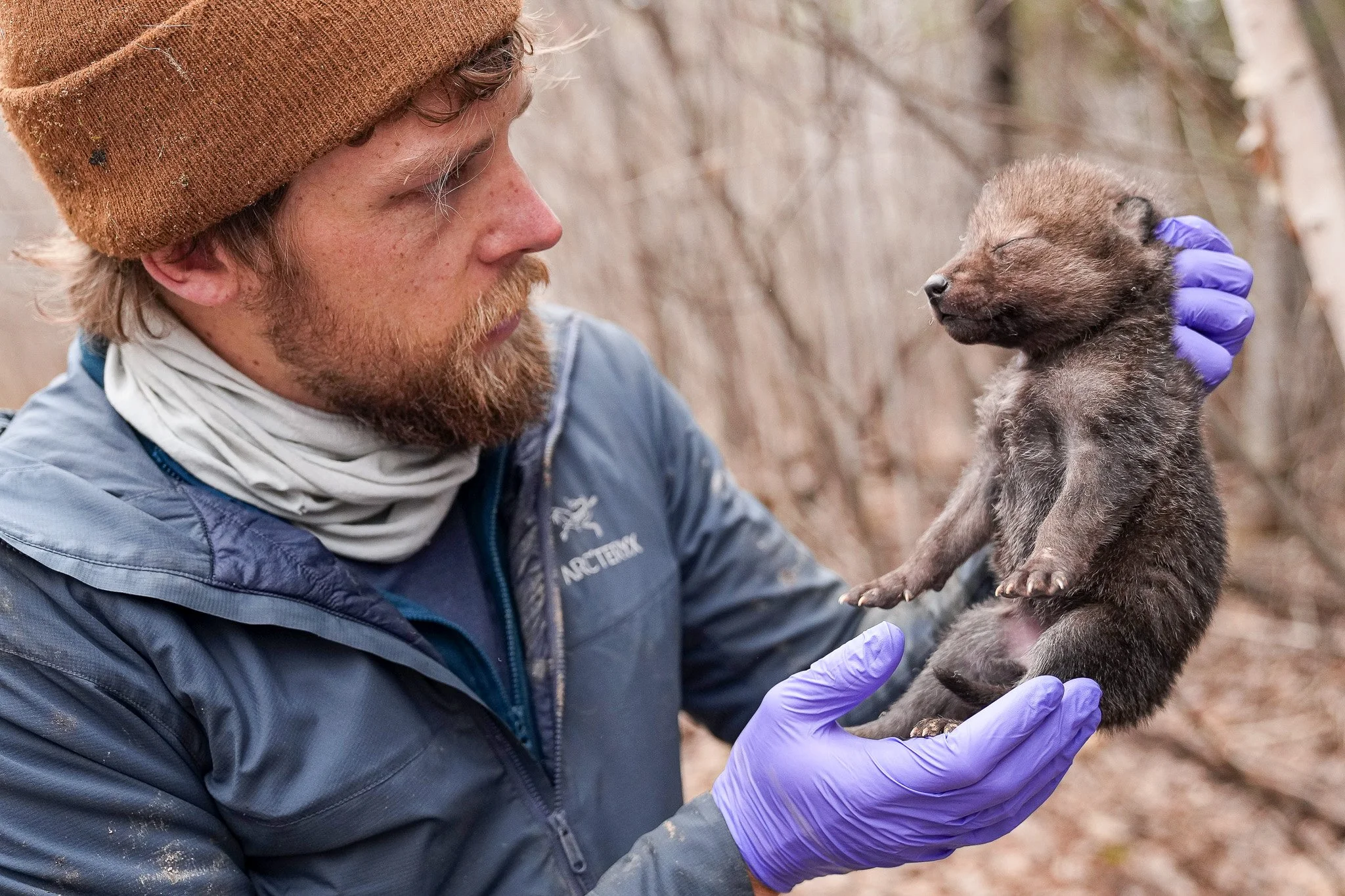Written By: Leslie Brown
Austin Homkes is a field biologist with Voyageurs Wolf Project where he studies wolves in Northern Minnesota, using a network of trail cameras, GPS collars, and direct observations to learn more about the lives and ecological role of wolves in the southern boreal forest.
He has crawled into active wolf dens when the adults were away, deftly inserting microchips under the pups’ skin; captured adult wolves and collared them with GPS collars before releasing them into the wild; examined kill sites to determine what they have eaten and how they kill their prey. It is work that has led to significant discoveries about wolf behavior and ecology.
“Wolves are well-studied animals but not here in the Minnesota ecosystem, where they are cryptic and more hidden,” he said. “That’s why we are doing this work. There is a lot we still don’t know.”
Austin’s path to Voyageurs Wolf Project began a decade ago, when he discovered his love of field biology as an intern for Cascades Carnivore Project. If his current job is a dream come true, so was his two-month stint with us in 2014, when he hiked the subalpine meadows of Mount Rainier and Mount Hood, looking for mountain red fox and wolverine scats.
Austin – newly graduated with a B.A. in Biology from Hope College in Holland, Michigan – had never been to the Pacific Northwest before his position with CCP. “I found the landscape stunning,” he said. He also loved the work. “Being with CCP was my first real field job. It solidified for me that I wanted to study larger animals in the field. I realized I wanted to do hands-on work.”
Six months later, he was in Minnesota doing just that, working with a friend and colleague for what eventually became Voyageurs Wolf Project. The organization is now a University of Minnesota research project focused on wolves’ summertime ecology.
In 2021, while working for the project, Austin earned a master’s degree in biology from Northern Michigan University – his thesis examined wolf predation of white-tailed deer fawns.
Like his work for CCP, Austin’s position today is physically challenging but deeply rewarding, replete with some incredible experiences. Asked to share one, he described a moment in 2019, when he visited a wolf den that he thought the pack had vacated – to make sure, he stood nearby and howled. To his amazement, five pups emerged from the den and crept close, circling him as they tried to figure out who (or what) he was. He remained in place when the adult returned (she didn’t see him), and watched as she fed to the pups.
He later examined the remains and discovered a behavior new to biologists. She had regurgitated blueberries, an observation that led to a peer-reviewed paper Austin authored: “Berry Important? Wolf Provisions Pups with Berries in Northern Minnesota.”
As Austin begins his tenth year studying wolves in Minnesota, he reflected on those days in the Cascades in 2014. “I never could have known where this passion would take me, but I can see now the seed was planted in those mountains picking up scat with Cascades Carnivore Project.”

